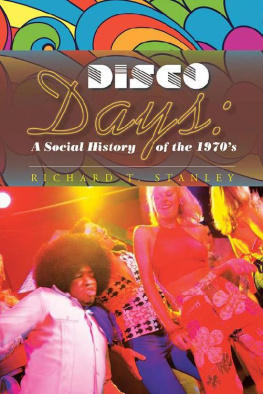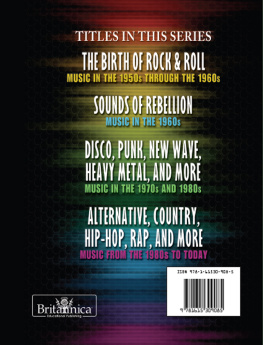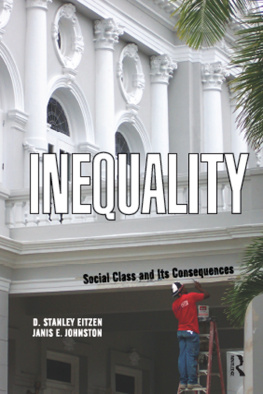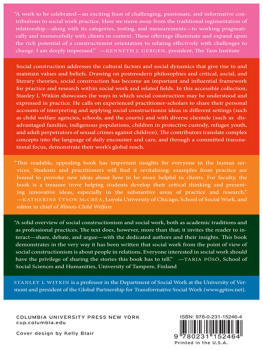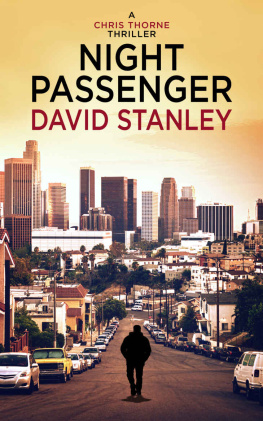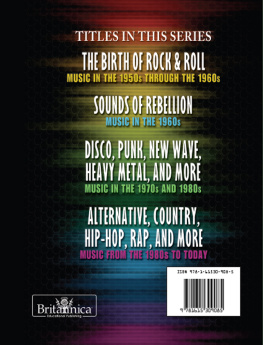Richard T. Stanley - Disco Days: A Social History of the 1970’s
Here you can read online Richard T. Stanley - Disco Days: A Social History of the 1970’s full text of the book (entire story) in english for free. Download pdf and epub, get meaning, cover and reviews about this ebook. City: Bloomington, year: 2015, publisher: iUniverse, genre: Non-fiction. Description of the work, (preface) as well as reviews are available. Best literature library LitArk.com created for fans of good reading and offers a wide selection of genres:
Romance novel
Science fiction
Adventure
Detective
Science
History
Home and family
Prose
Art
Politics
Computer
Non-fiction
Religion
Business
Children
Humor
Choose a favorite category and find really read worthwhile books. Enjoy immersion in the world of imagination, feel the emotions of the characters or learn something new for yourself, make an fascinating discovery.
- Book:Disco Days: A Social History of the 1970’s
- Author:
- Publisher:iUniverse
- Genre:
- Year:2015
- City:Bloomington
- Rating:3 / 5
- Favourites:Add to favourites
- Your mark:
- 60
- 1
- 2
- 3
- 4
- 5
Disco Days: A Social History of the 1970’s: summary, description and annotation
We offer to read an annotation, description, summary or preface (depends on what the author of the book "Disco Days: A Social History of the 1970’s" wrote himself). If you haven't found the necessary information about the book — write in the comments, we will try to find it.
Disco Days: A Social History of the 1970’s — read online for free the complete book (whole text) full work
Below is the text of the book, divided by pages. System saving the place of the last page read, allows you to conveniently read the book "Disco Days: A Social History of the 1970’s" online for free, without having to search again every time where you left off. Put a bookmark, and you can go to the page where you finished reading at any time.
Font size:
Interval:
Bookmark:
DISCO DAYS:
A SOCIAL HISTORY OF THE 1970S
RICHARD T. STANLEY

DISCO DAYS: A SOCIAL HISTORY OF THE 1970S
Copyright 2015 Richard T. Stanley.
All rights reserved. No part of this book may be used or reproduced by any means, graphic, electronic, or mechanical, including photocopying, recording, taping or by any information storage retrieval system without the written permission of the publisher except in the case of brief quotations embodied in critical articles and reviews.
iUniverse
1663 Liberty Drive
Bloomington, IN 47403
www.iuniverse.com
1-800-Authors (1-800-288-4677)
Because of the dynamic nature of the Internet, any web addresses or links contained in this book may have changed since publication and may no longer be valid. The views expressed in this work are solely those of the author and do not necessarily reflect the views of the publisher, and the publisher hereby disclaims any responsibility for them.
Any people depicted in stock imagery provided by Thinkstock are models, and such images are being used for illustrative purposes only.
Certain stock imagery Thinkstock.
ISBN: 978-1-4917-6795-5 (sc)
ISBN: 978-1-4917-6796-2 (e)
iUniverse rev. date: 06/16/2015
Contents
This book is dedicated to my grandson
Ryan Thomas Stanley
This book is the third volume I have written in remembrance of the America of my youth. I hope you enjoy reading it. I certainly enjoyed writing it. Like my two preceding books in this series, The Eisenhower Years and The Psychedelic Sixties , it has been a labor of love.
I have long believed that historical accounts of the past should be more than a mere record of political and military campaigns, accomplishments, and failures, followed by summary conclusions, or so-called lessons . While certainly important in their own right especially when attempting to avoid repeating past failures political and military events recollected in isolation, outside the context of the existing broader society, fail to provide a more comprehensive picture of what was really happening to most people at that particular time and place. For example, would our current understanding of what it was like to live in the United States during the so-called Roaring Twenties of the Harding, Coolidge, and Hoover administrations be nearly as vivid and complete without such works as Frederick Lewis Allens classic , Only Yesterday: An Informal History of the 1920s ? Or the once-highly popular novels by the 1920s favorite contemporary social critic, Sinclair Lewis? I think not.
In The Eisenhower Years: A Social History of the 1950s , I claim that Americas Fabulous Fifties (especially 1953 through 1959) are truly times worth studying. The Eisenhower Years produced amazing contributions to our American culture and to other cultures around the world. In so many ways, Americans innovated, and the world imitated from Elvis Presley and rock n roll to the Salk anti-polio vaccine. Americas contributions to the world included motion pictures and the Broadway stage; radio and television; amateur and professional sports; jazz, the blues, country-and-Western music, traditional ballads and popular songs, and rock n roll; domestic and international business and trade; public and private educational opportunities; and a rich and varied literature.
The Eisenhower Years including TV dinners, skating waitresses, hairy wrestlers, and rock n roll were not the cultural desert days some critics may wish us to believe. Quite the contrary, the Fabulous Fifties warts and all was an extremely rich and creative decade. Americas exuberance in so many areas of the arts and everyday life was omnipresent. As for political and military achievements, President Eisenhower kept us safely out of war, and was wise enough to stay out of the way of Americas artists and entrepreneurs. As a result, the Eisenhower Years should forever be remembered as those Happy Days.
My second book, The Psychedelic Sixties: A Social History of the United States, 1960-69 , represents a decade during which I was personally involved in a wide variety of occupations, including college student, restaurant worker, army reservist, department store assistant manager, and ultimately, high school civics teacher, activities director, and tennis coach. I was fortunate enough to be one of many Americans who managed to not only survive, but thrive during those turbulent years of the Psychedelic Sixties.
When the decade of the 1960s began, I was a nineteen-year-old history major at Long Beach State College (soon to be renamed California State University at Long Beach). During my sophomore year, I neither knew, nor was I aware of any clever pundits who even came close to predicting the radical cultural shifts, the bloody race riots in the North and far West, the anti-Vietnam War protests, including sit-ins and draft card and flag burnings on university campuses across the land, the rampant drug usage, and the many other examples of social mayhem, such as free love and bralessness, that would soon rock American society and change us forever. Who in 1960 knew that the Eisenhower Years of Americas Happy Days, steady-as-you-go, conformist mentality would soon morph into the helter-skelter crazy quilt of idealism, radical thought, and antiestablishment behavior that may best be described as the Psychedelic Sixties ? As late as the Presidential Election of 1964, who knew that Lyndon Johnsons so-called Great Society would soon topple as a result of our enormous losses in blood, trust, and treasure? In this case, Richard Nixon did, and he was actively lurking in the wings.
This book, Disco Days: A Social History of the 1970s , begins, in Chapter One at least, like a Greek tragedy. First elected in 1968, President Richard Nixon went on to reach the pinnacle of political power and public popularity, only to fall prey to his own private paranoia regarding his enemies both real and imagined. Had Nixon simply relied on the merits of his many talents and abilities without resorting to criminal activities and dirty tricks to win reelection, he may have been remembered to this day as one of our greatest Presidents rather than as the only Chief Executive in our history to resign in disgrace. The tragedy of Richard Nixon may be summarized by one simple sentence: He was his own worst enemy.
Just as the Psychedelic Sixties cannot be simply defined as a decade dominated by the use of mind-altering drugs, calling the decade of the 1970s Disco Days does not mean that America during the 1970s was a society totally dominated by the combination of a particular style of music and dancing. Nevertheless, just as many Americans to this day still associate the 1920s with a dance craze known as The Charleston, those of us who were young adults during the 1970s have many fond memories of our Disco Days. Disco Days is simply a nostalgic label I have chosen to describe an otherwise highly complex and often enlightened (and, at times, very troubling) decade in our nations history.
As the population of the United States grew from 151,325,796 in 1950 to 179,323,175 in 1960, and from 203,211,926 in 1970 to 226,545,805 in 1980, so too did the sheer volume of its inhabitants activities and accomplishments. Therefore, while I have sought to maintain a rather consistent degree of brevity in each successive volume I have produced in this series of books covering three decades of my youth, my Eisenhower Years is skinner than The Psychedelic Sixties , and my Disco Days is the fattest of the three. Why? The more Americans, the more to write about.
Politically, the decade of the 1970s was a time of firsts, including:
- First Vice President to resign in disgrace (Spiro Agnew).
Font size:
Interval:
Bookmark:
Similar books «Disco Days: A Social History of the 1970’s»
Look at similar books to Disco Days: A Social History of the 1970’s. We have selected literature similar in name and meaning in the hope of providing readers with more options to find new, interesting, not yet read works.
Discussion, reviews of the book Disco Days: A Social History of the 1970’s and just readers' own opinions. Leave your comments, write what you think about the work, its meaning or the main characters. Specify what exactly you liked and what you didn't like, and why you think so.

